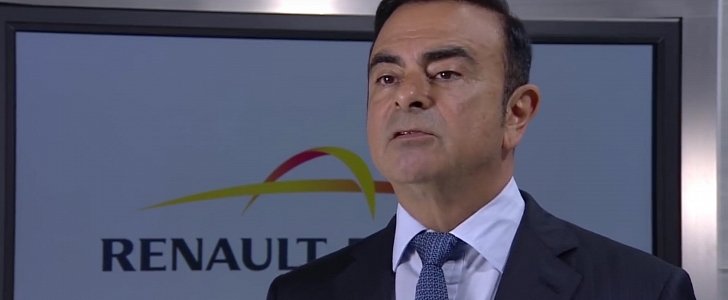The Alliance has recently sold the company’s 250,000th EV, a milestone for the first automaker to offer a full range of electric vehicles. Together with Renault, Nissan has manufactured more than half the cars that drive on 100 percent renewable energy. All these figures are praiseworthy, but are not nearly enough to keep the planet safe from global warming’s major threats - Carlos Ghosn thinks.
In his most recent LinkedIn Influencer post, the Alliance CEO explains how he believes that a smooth transition to a low-carbon economy is the key element to what the world’s leaders need to focus on at the upcoming COP21 climate change conference in Paris.
Sure, some may say they couldn’t care less about some fancy Parisienne gathering where the leaders of the planet will once again discuss matters that us, regular people, have no chance to influence.
But it would be wrong to think this way. As you may have heard by now, the objective of the conference is to achieve a legally binding and universal agreement on climate, from all the nations of the world. The gathering starts at the end of this month and goes through December 11. It may be the most crucial audience in the last decade or more, and we clearly should pay lots more attention to it.
Naturally, Carlos Ghosn also took advantage of the international event to promote his company’s eco-conscious efforts, as well as Renault-Nissan Alliance’s plans for the near future. Nevertheless, here’s what we believe is the essence of the automotive CEO’s post:
“The country-by-country commitments that will comprise the Paris agreement, by themselves, will not be enough to reduce greenhouse gas emissions to a level that limits global warming. The support of the business community is mandatory. And let's be clear: the transition to a low-carbon economy will occur one way or another. It will either be an orderly transition over the next two to three decades, or a disorderly one, spurred by crises and human hardship. Further delay in taking global action will only ensure the latter.”
Sure, some may say they couldn’t care less about some fancy Parisienne gathering where the leaders of the planet will once again discuss matters that us, regular people, have no chance to influence.
But it would be wrong to think this way. As you may have heard by now, the objective of the conference is to achieve a legally binding and universal agreement on climate, from all the nations of the world. The gathering starts at the end of this month and goes through December 11. It may be the most crucial audience in the last decade or more, and we clearly should pay lots more attention to it.
Naturally, Carlos Ghosn also took advantage of the international event to promote his company’s eco-conscious efforts, as well as Renault-Nissan Alliance’s plans for the near future. Nevertheless, here’s what we believe is the essence of the automotive CEO’s post:
“The country-by-country commitments that will comprise the Paris agreement, by themselves, will not be enough to reduce greenhouse gas emissions to a level that limits global warming. The support of the business community is mandatory. And let's be clear: the transition to a low-carbon economy will occur one way or another. It will either be an orderly transition over the next two to three decades, or a disorderly one, spurred by crises and human hardship. Further delay in taking global action will only ensure the latter.”

